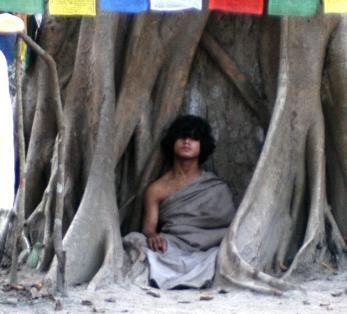Scientists have investigated a few highly publicized cases of people who claim not to eat or drink for years, yet remain quite healthy. Any scientific investigations that have supported these claims, however, have remained controversial.
It has long been held in Buddhist tradition that those who leave society to meditate and cultivate in the mountains may be able to survive without food and water. Their bodies are said to enter a different state, and since the need to eat would prevent them from concentrating on extended meditation, they are supernaturally able to overcome this need.
The human body is usually said to survive only a few days without water, and only as many as 30 to 40 days without any food. Some people who have been inspired by these claims of continuous, extended fasting have tried it themselves and endured great injury and even died as a result.
Ram Bahadur Bomjon, a Young Buddhist
In 2005 a young Nepalese Buddhist, Ram Bahadur Bomjon, reportedly meditated for eight months without food or water, separated from any outside contact by a fence. A Discovery Channel crew filmed him for four days and nights straight to confirm that for this period of time he did not have any external sustenance, as shown in the special, “The Boy With Divine Powers.”






